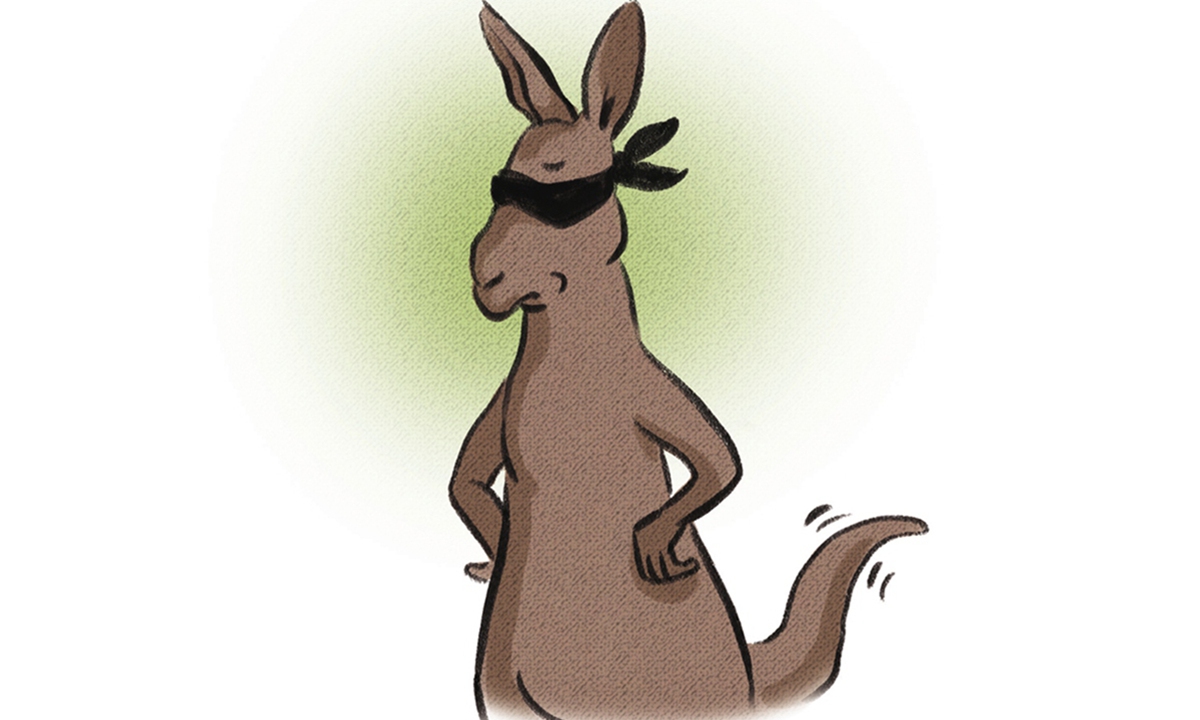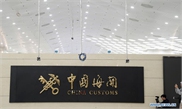
Australia's blindness Illustration: Liu Rui/GT
China-Australia relations experienced a downward trend in 2020. This bilateral relationship might have hit the "lowest ebb in decades" as some Australian scholars said.
Meanwhile, as the Trump administration upgraded relations with the island of Taiwan as a direct and defiant challenge to China's sovereignty and core interests, secessionist forces on the island became more active. They meddled with the Hong Kong affairs by smearing the "one country, two systems" principle and the national security law for Hong Kong. This also put cross-Taiwan Straits relations at an impasse.
Now, certain forces in Taiwan are even trying to engage with Australia directly. Indeed, Australia and the island of Taiwan share common interests in terms of attacking the national security law for Hong Kong and creating a negative image of the Chinese mainland. As the Biden administration will probably reverse Trump's dangerous Taiwan policy, but the China-Australia tensions are escalating while cross-Straits relations sour, Taiwan and Australia may get closer in 2021 to cope with the Chinese mainland and the rapid changes in regional environment.
Australia and Taiwan may share information and strategically coordinate to smear China: namely interfering in the Hong Kong affairs, and attacking the Chinese mainland with the excuse of the so-called human rights records. Currently, Taiwan has been active in a bid to counter the mainland. But Australia has remained restrained, except for shrill noises made by a few right-wing members of parliament.
So what "Taiwan card" can Australia play?
Even after China and Australia established formal relations in 1972, Australia has retained close non-official exchanges and economic relations with Taiwan. Australia's Taiwan policy has always been affected by the US. In fact, Canberra sings the same tune as Washington with regards to Taiwan.
Australia has avoided being directly involved in a military collision between major powers across the Taiwan Straits. In particular, it has avoided directly provoking the Chinese mainland and challenging China's core interests and national territorial integrity.
Former Australian foreign minister Alexander Downer said in 2004 that "other military activity elsewhere in the world… doesn't automatically invoke the ANZUS Treaty." This means Canberra will not make up "two Chinas" policies unless Washington explicitly abandons its "one China" policy.
Australia's policies toward the island of Taiwan are somewhat ambiguous as it wants to keep a proper distance from the US' dangerous Taiwan policy, meanwhile it does not want to harm or weaken the Australia-US alliance. Australia does not want to see a war in the Taiwan Straits, especially one between the US and China.
Canberra wants to maintain some flexibility on whether to intervene in the Taiwan question. Yet it also avoids taking a clear stance on whether it would put up a fight there or not if called upon. Canberra worries that Washington would weaken its security commitments, so it had to back US position on Taiwan question, hoping Washington will not start an actual firing conflict there ever.
The Taiwan regional authority hopes to restore "diplomatic relations" with Australia. It seeks to enhance strategic cooperation and intelligence-sharing mechanisms with Australia for the sake of counterbalancing the Chinese mainland and rejecting reunification by force. Despite these overtures, Australia has expressed a relatively indifferent response considering its national security and diplomatic strategies.
However, Australia's diplomatic posture, especially its China focus, is undergoing an important and dangerous transition. Geopolitical issues are overtaking matters of geoeconomics in its strategic thinking toward China. It is shifting from rational and pragmatic to hard-line and conservative.
With intensifying gravity, it is viewing China as a security threat rather than a partner that brings opportunity of development. Due to the ANZUS Treaty (Australia, New Zealand and United States Security Treaty) signed in 1951, it is possible for Australia to directly involve itself in military conflicts across the Taiwan Straits.
Therefore, China should be on guard against Australia's Taiwan policy and send a clear signal to policymakers in Canberra that China's sovereignty and territorial integrity cannot be challenged and that China is determined to safeguard its core national interests, so as to deter those who seek Taiwan secession and those far-right politicians in Australia. China will never allow Australia to play the "Taiwan card." The bottom line of the "one China" principle cannot be challenged.
The author is an adjunct researcher at the Center for Australian Studies, China University of Mining and Technology. opinion@globaltimes.com.cn



